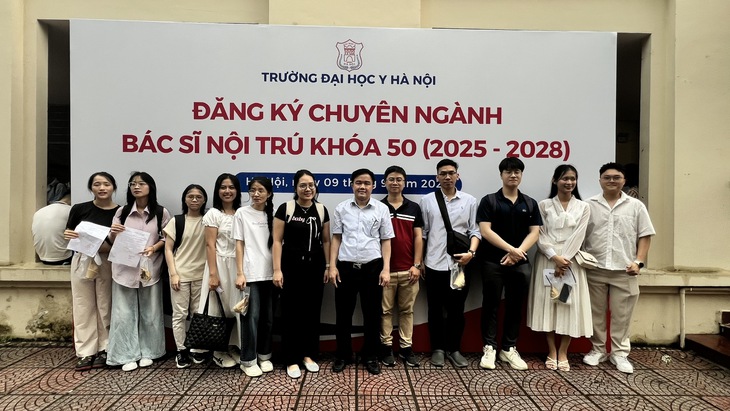
Dr. Pham Van Thai, deputy director of the Center for Nuclear Medicine and Oncology (Bach Mai Hospital) - 7th from the right - and some resident doctors who chose the nuclear medicine major on the matching day on September 9 - Photo: BVCC
According to Hanoi Medical University, this is the school's 50th residency training course. The residency training system is also considered by the medical community as "elite training" because of its difficulty and strict requirements, although compared to the past, the opportunity to become a resident doctor is now much higher.
When the teacher "PR" to invite students
A few days before the matching day, many teachers "PR" on their personal pages to invite good doctors to register for their specialties. Associate Professor Do Gia Tuyen, head of the Department of Internal Medicine at Hanoi Medical University, "invited": "General Internal Medicine Residency is not just a specialty, it is the foundation of clinical medicine, the heart of the hospital. Choosing General Internal Medicine, you will have the opportunity to comprehensively approach all fields, from cardiovascular, respiratory, kidney - urinary...".
Dr. Nguyen Quang Bay, an endocrinologist at Bach Mai Hospital and a lecturer at Hanoi Medical University, shared that around September 9 (the day the school organized matching day), departments actively invited good doctors to register for residency.
Although Dr. Bay believes that any major is noble, on his personal page he still "annotated": "I wish the 50th class of residents to wisely choose the general internal medicine major."
This year, a total of 426 doctors chose to be residents, and the doctors standing and calling out their names + the residents they chose made social networks "feverish".
Why is matching day important?
Associate Professor, Dr. Pham Cam Phuong, director of the Center for Nuclear Medicine and Oncology (Bach Mai Hospital), concurrently a lecturer at Hanoi Medical University, who studied as a resident physician in the 26th course, said that during her residency, only 50 doctors from each graduating class were allowed to study as residents.
Those are the ones with the highest scores. To get into residency, doctors may have studied day and night since entering school.
"At that time, each doctor who was qualified for the residency exam would register for the major first, taking the exam with those who also registered for that major. Then the teachers realized that there was a good person who registered for major A, but major A only accepted 2 residents. When taking the exam, that doctor ranked 3rd and failed, even though he was very good. That's why there was a matching day, the doctor with the highest score would be chosen for the major first" - Dr. Phuong shared.
Because the selection is from high score down, there are cases where the doctor runs out of space in the hot major or the major the doctor has chosen.
That's why some doctors "hesitate" and are confused when deciding on a major after being called out. "There are cases where after six months of studying, they want to change their major because it doesn't suit them. Residency is just one way," one doctor wrote.

Resident doctor with the highest score in this year's matching day (left photo) - Photo: NGUYEN BAO
Training elite doctors?
Although the number of residents selected this year is much higher than before, this is still the training system that produces the elite of the medical profession, because after 6 years of studying general medicine, doctors will have 3 more years of "studying" at the hospital. That is the time for doctors to accumulate clinical experience and after graduating from residency, doctors can work completely independently.
According to Hanoi Medical University, by 2024 the school has trained nearly 5,200 resident doctors, over 3,300 in the last 9 years alone. Many resident doctors have become leaders of the Ministry of Health , hospital leaders, skilled doctors, leading doctors and the title "resident doctor" is always highly appreciated by hospitals, patients and colleagues.
"In the past, when we went to boarding school, we were paid enough to go to school. Now, interns go to school without salary and have to pay tuition (except for doctors who have a contract with the hospital after graduating), so the cost of studying medicine is even higher. If interns were paid, it would be more reasonable and create conditions for doctors to wholeheartedly study the profession" - Dr. Cam Phuong shared.
Source: https://tuoitre.vn/vi-sao-ngay-matching-day-chon-bac-si-noi-tru-hot-ran-ran-tren-mang-xa-hoi-20250911193417914.htm








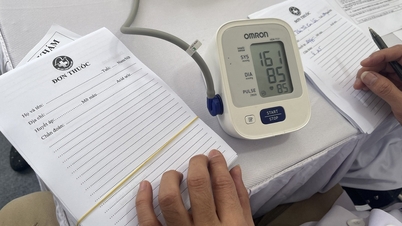










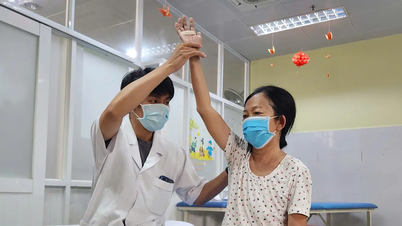

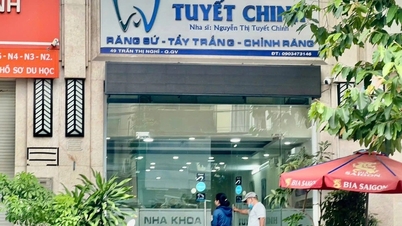






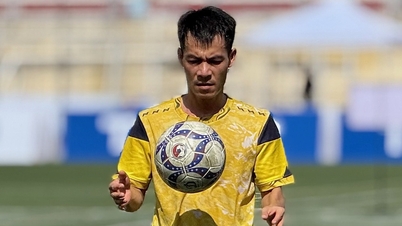
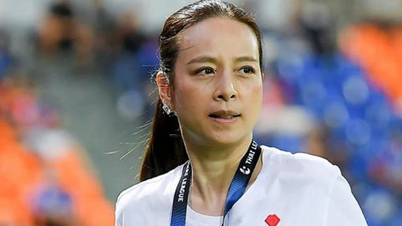
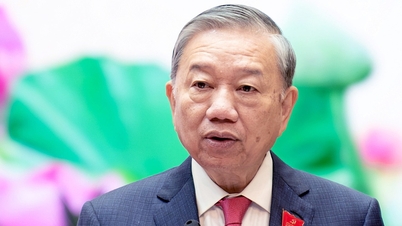


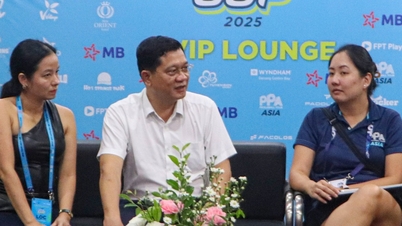









































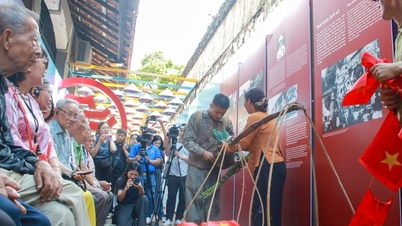


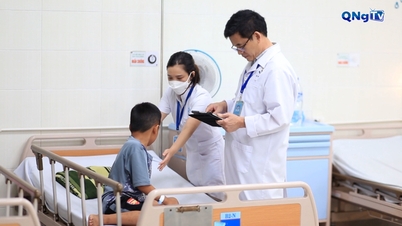





















Comment (0)